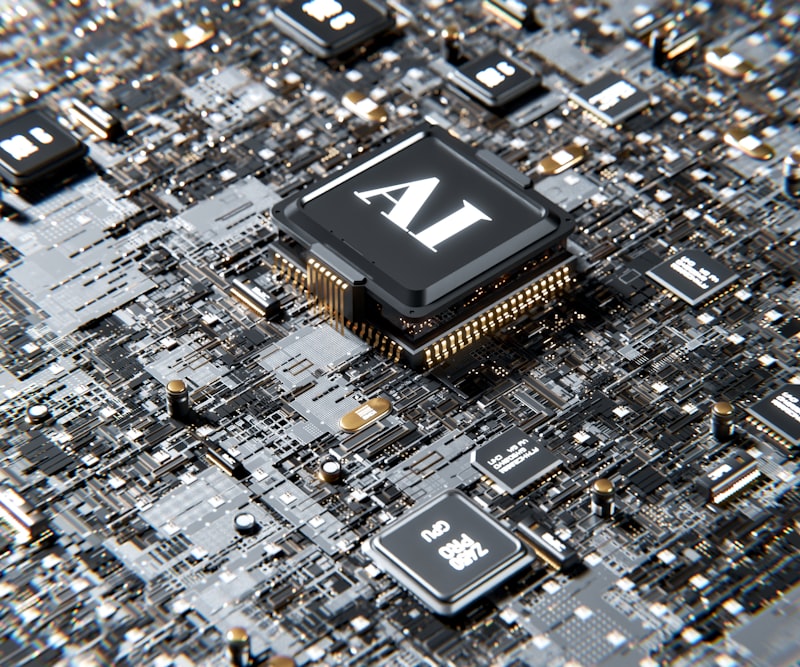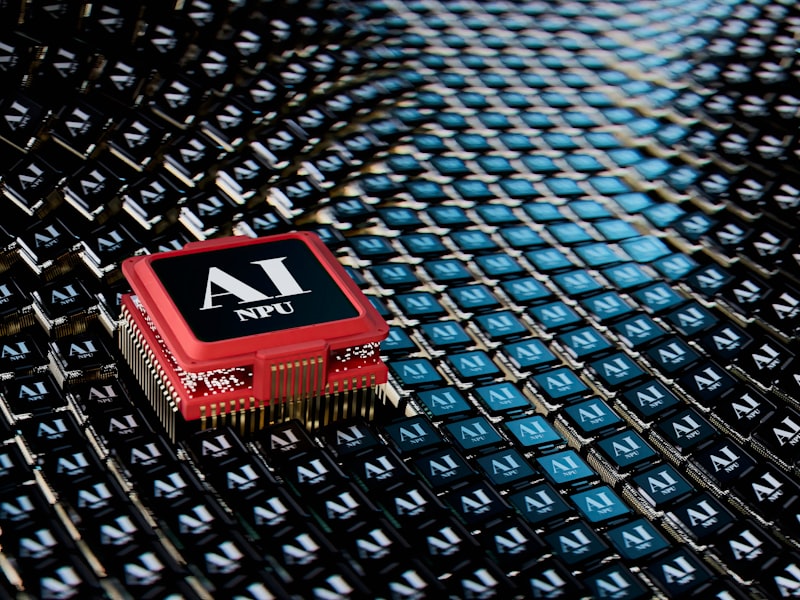In industries like pharmaceuticals, quantum computing promises to accelerate drug discovery by modeling complex molecular interactions with unprecedented accuracy. What used to take years could now be done in weeks or even days, potentially saving millions of lives by swiftly identifying effective treatments.
Financial sectors are also set to benefit immensely. Quantum algorithms can swiftly analyze vast amounts of data, optimizing portfolios and risk management strategies in real-time. This capability could mitigate financial risks and enhance investment decisions, offering a competitive edge in the dynamic global market.
Moreover, cybersecurity is due for a revolution. Quantum computers excel in breaking conventional encryption methods, but they also hold the key to creating virtually unhackable systems through quantum cryptography. This shift could safeguard sensitive data and communications, ensuring privacy in an increasingly digital world.
The impact on logistics and supply chain management is equally profound. Quantum computing can optimize routes, inventory management, and distribution networks to unprecedented efficiency levels, reducing costs and environmental footprint while enhancing service delivery.
In essence, quantum computing isn’t just an upgrade; it’s a paradigm shift. It challenges us to reimagine what’s possible and opens doors to innovations previously confined to science fiction. As we harness its power, industries across the globe stand to benefit, transforming how we live, work, and interact with technology. The journey is just beginning, and the potential—limitless.
Quantum Leap: Unveiling the Industries Set for Disruption by Quantum Computing
One of the foremost industries on the cusp of disruption by quantum computing is cryptography. Traditional encryption methods rely on mathematical complexity, but quantum computers can decipher these codes exponentially faster with algorithms like Shor’s algorithm. This breakthrough threatens the security protocols that underpin global finance, communications, and data privacy, compelling industries to rethink their cybersecurity strategies.

In healthcare, quantum computing promises groundbreaking developments in drug discovery and personalized medicine. With the ability to simulate molecular interactions accurately and efficiently, researchers can accelerate the process of identifying new drugs and therapies tailored to individual genetic profiles. This could potentially revolutionize treatments for diseases like cancer, Alzheimer’s, and genetic disorders, offering hope where conventional methods have fallen short.
Logistics and supply chain management are also poised for disruption. Quantum algorithms can optimize routes and streamline operations in ways classical computers cannot, leading to significant cost savings and efficiency gains. Industries reliant on complex optimization problems, such as transportation, manufacturing, and distribution, stand to benefit immensely from these advancements.
Furthermore, quantum computing holds immense potential in the realm of artificial intelligence and machine learning. Quantum algorithms can enhance pattern recognition, natural language processing, and optimization tasks, paving the way for smarter AI systems capable of unprecedented feats in data analysis and decision-making.
As we venture further into the quantum computing era, the possibilities seem limitless yet tantalizingly within reach. From revolutionizing cryptography to unlocking the secrets of the universe at a molecular level, quantum computing promises to reshape industries across the board. The race to harness its full potential is on, with early adopters poised to gain a transformative edge in their respective fields.
Breaking Boundaries: How Quantum Computing Is Redefining Technological Frontiers
At the heart of quantum computing lies the quantum bit, or qubit. Unlike classical bits that can only exist in a state of 0 or 1, qubits can be in a state of 0, 1, or both simultaneously thanks to a phenomenon known as superposition. It’s like having multiple doors open at once, allowing quantum computers to explore many possibilities simultaneously and potentially compute solutions much faster than classical computers.
Another mind-bending concept in quantum computing is entanglement. When qubits become entangled, the state of one qubit instantly correlates with the state of another, no matter the distance between them. It’s as if they communicate faster than the speed of light, defying classical notions of information transfer.
These capabilities unlock a universe of possibilities. Quantum computers could revolutionize fields like cryptography, material science, drug discovery, and artificial intelligence. Imagine designing new materials with precisely engineered properties or simulating complex molecular interactions to develop life-saving drugs—all at speeds unthinkable with today’s technology.
However, quantum computing isn’t without its challenges. Maintaining the delicate quantum states required for computation is incredibly difficult due to environmental interference. Scientists are tackling these hurdles with advancements in error correction and control systems, pushing the boundaries of what’s possible.
From Finance to Pharmaceuticals: Industries Bracing for Quantum Computing’s Impact
In finance, where microseconds can mean millions, quantum computing promises to revolutionize trading strategies, risk management, and even the security of financial transactions. Traditional computers struggle with complex calculations needed for risk assessment and portfolio optimization. Enter quantum computers, with their ability to process vast amounts of data simultaneously. They can crunch numbers at speeds inconceivable to classical computers, potentially predicting market trends with unprecedented accuracy.
But it’s not just about speed. Quantum computing could enhance cybersecurity, a critical concern in an increasingly digital financial landscape. Its unique algorithms could fortify encryption methods, making sensitive financial data virtually impenetrable to cyber threats.
On the flip side, in pharmaceuticals, the impact of quantum computing could be equally transformative. Drug discovery, typically a lengthy and costly process, could be revolutionized. Quantum computers excel at simulating molecular interactions, potentially speeding up the discovery of new drugs and optimizing personalized treatments tailored to an individual’s genetic makeup.
Moreover, quantum computing could unravel the complexities of diseases at a molecular level, offering insights into conditions that have baffled traditional medicine. This could lead to breakthrough treatments for diseases like cancer, Alzheimer’s, and others that have long eluded cure.

In essence, both finance and pharmaceuticals are gearing up for a seismic shift. Quantum computing isn’t just an evolution; it’s a revolution that promises to rewrite the rules of engagement in these industries. As we stand on the brink of this technological leap, the possibilities seem limitless. The question now isn’t whether quantum computing will transform these industries, but rather, how soon and how profoundly it will happen.
Quantum Computing: The Future of Cybersecurity and Data Privacy
In quantum computing, bits aren’t merely ‘0’s and ‘1’s but qubits, which can exist in multiple states simultaneously thanks to quantum superposition. This enables quantum computers to explore vast solution spaces simultaneously, solving complex problems exponentially faster than classical computers. For cybersecurity, this means a potential leap in cracking current encryption standards, prompting a race to develop quantum-resistant cryptography.

Data privacy, too, faces a paradigm shift. Quantum communication ensures ultra-secure transmission by leveraging entanglement, where particles become interconnected regardless of distance. This phenomenon enables quantum key distribution (QKD), offering a foolproof method to exchange cryptographic keys without risk of interception.
Yet, the path to widespread quantum computing adoption isn’t without challenges. Building stable quantum systems requires overcoming noise and error rates inherent in quantum states. Researchers are diligently working to extend the coherence time of qubits, essential for reliable computation.
As quantum computing matures, industries are exploring its transformative potential. From financial institutions safeguarding transactions to healthcare providers securing sensitive patient data, quantum technology promises unparalleled security.
Frequently Asked Questions
In what industries will quantum computing have the most significant impact?
Discover how quantum computing is set to revolutionize industries like pharmaceuticals, materials science, finance, and cybersecurity with unprecedented computational power and problem-solving capabilities.
What are the current challenges hindering the widespread adoption of quantum computing in industries?
Learn about the challenges preventing quantum computing from widespread adoption in industries, providing a concise overview of current obstacles.
How will quantum computing affect cybersecurity and data encryption?
Explore the impact of quantum computing on cybersecurity and data encryption. Learn about potential vulnerabilities and advancements in quantum-safe cryptography to secure sensitive information in the future.
How can businesses prepare to harness the potential of quantum computing?
Learn how businesses can effectively prepare to leverage the power of quantum computing, exploring strategies for early adoption, assessing quantum readiness, and fostering interdisciplinary collaborations.
What is quantum computing and how does it differ from classical computing?
Quantum computing harnesses quantum mechanics to process information in ways fundamentally different from classical computing. Unlike classical computers, which use bits as binary units of information, quantum computers use qubits, which can exist in multiple states simultaneously thanks to superposition and entanglement. This enables quantum computers to solve certain complex problems exponentially faster than classical computers.


